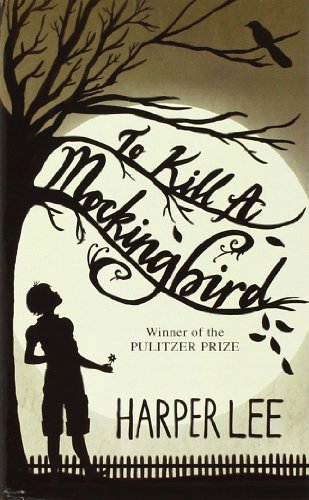All Nonfiction
- Bullying
- Books
- Academic
- Author Interviews
- Celebrity interviews
- College Articles
- College Essays
- Educator of the Year
- Heroes
- Interviews
- Memoir
- Personal Experience
- Sports
- Travel & Culture
All Opinions
- Bullying
- Current Events / Politics
- Discrimination
- Drugs / Alcohol / Smoking
- Entertainment / Celebrities
- Environment
- Love / Relationships
- Movies / Music / TV
- Pop Culture / Trends
- School / College
- Social Issues / Civics
- Spirituality / Religion
- Sports / Hobbies
All Hot Topics
- Bullying
- Community Service
- Environment
- Health
- Letters to the Editor
- Pride & Prejudice
- What Matters
- Back
Summer Guide
- Program Links
- Program Reviews
- Back
College Guide
- College Links
- College Reviews
- College Essays
- College Articles
- Back
To Kill a Mockingbird by Harper Lee
After reading To Kill a Mockingbird by Harper Lee, I can sincerely admit that it is one of the best books I have ever read, as it has taught me lessons on such values as morality, courage, perseverance, and righteousness and has changed my outlook on life for the better. The story, one of great suspense and emotion throughout, demonstrates to modern readers the importance of exercising such values in times of conflict and injustice and of always doing what is right no matter what.
The story itself is about a young girl named Scout Finch, who lives with her father, Atticus, and brother, Jem, in the deep south and is often curious about the world around her as she grows up. The setting is the early 1930s, in the midst of not only severe economic struggles, but especially of great cultural conflicts in the form of racism and prejudice toward African Americans, which is a major theme of the story. The story centers around the life of the Finch family, who are unique from those around them, and in doing so emphasizes the concepts of family and social values and morals. The father, Atticus Finch, who works as a lawyer, represents the concept of justice in the story as he views all people as equal and works to promote and act upon such values. Finch also acts as an influential father figure toward his son as well as his daughter, who, while growing up in a world of injustice, learns such qualities from him as respecting the views of others, promoting equality and morality, and standing up for what is right. The turning point of the story comes when Finch is faced with the most difficult decision of his career: whether or not to take on a case involving an African American man named Tom Robinson, who is falsely accused of rape. Due to the racist culture in which the story is set, friends, neighbors, and even family members urge Finch not to take the case as doing so could potentially put his career on the line. However, driven by his own distinct morals and values, Finch decides to take on the case and, although he ends up losing it, works hard until the very end to secure Robinson’s life, even amidst much public hostility and opposition. Although the ending is not fully positive with the murder of Robinson, it does evidence the mental and moral development of Scout and Jem Finch due to their father’s actions and the impact that Atticus Finch has not only on his children, but on his community as a whole.
While the story is set long ago, the lessons it teaches can apply to modern society by encouraging people to always stand up for what is right and work to ensure the improvement of society and the world as a whole. The symbolic characters, meaningful themes, and detailed setting add to the story’s appeal and make it worth the read from beginning to end. I would recommend this book to everyone I know who has not already read it, so that they too can learn its lessons and apply them to the societal problems of today. With racial tensions and resistance to change still persisting even today, it is important that all people who have not already done so read this powerful, moving story and learn to embrace rather than suppress progress, so that society and the world generally can become more accepting of all people.
Similar Articles
JOIN THE DISCUSSION
This article has 0 comments.
